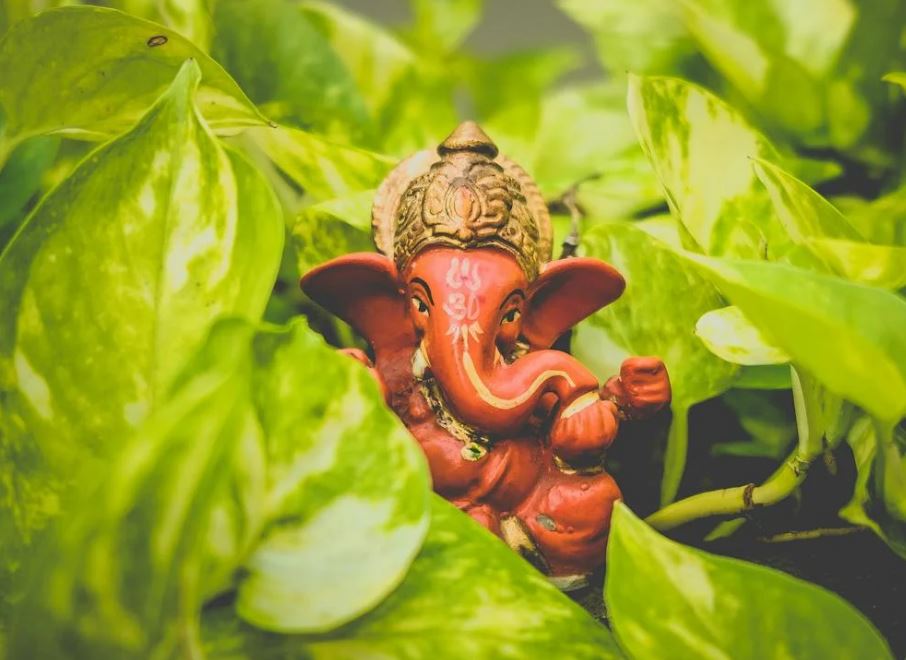Sakat Chauth: Rituals, Story, Observance, and Fasting Guidelines
Table of Contents

Sakat Chauth is a Hindu fasting observance dedicated to Lord Ganesha, the remover of obstacles. It is primarily observed by women for the well-being and prosperity of their families. The word “Sakat” refers to the “Sankashti Chaturthi” which falls on the fourth day after the full moon, typically observed every month. However, Sakat Chauth is specifically associated with the Sankashti Chaturthi falling in the month of Magha (January/February).
Rituals and Observance
- Fasting: Devotees, usually women, observe a strict fast from sunrise to moonrise on Sakat Chauth. They abstain from consuming food and water during this period.
- Morning Rituals: Devotees wake up early, take a bath, and wear clean clothes. They then prepare for the day’s fasting and prayers.
- Ganesh Puja: A small idol or picture of Lord Ganesha is placed on a clean altar or platform. Devotees offer flowers, incense, and sweets to Lord Ganesha and recite prayers and mantras dedicated to Him.
- Vrat Katha: The story of Sakat Chauth is narrated during the day, emphasizing faith, devotion, and the power of prayers.
- Evening Rituals: As the moon rises, devotees break their fast after sighting the moon. They offer prayers to the moon and Lord Ganesha, seeking blessings for their families’ well-being and prosperity.
Foods to Avoid During Sakat Chauth Fast
- Grains: Devotees refrain from consuming grains like wheat, rice, and lentils during the fast.
- Salt: Salt is usually avoided during the fasting period.
- Non-vegetarian Food: Meat, fish, and eggs are not consumed during the fast.
- Onion and Garlic: These pungent vegetables are generally avoided during fasting.
- Certain Vegetables: Some vegetables like brinjal (eggplant) and spinach are also avoided.
Foods Allowed During Sakat Chauth Fast
- Fruits: Devotees can consume a variety of fruits like bananas, apples, oranges, and grapes.
- Dairy Products: Milk, yogurt, paneer (cottage cheese), and ghee (clarified butter) are permitted.
- Nuts and Dry Fruits: Almonds, cashews, raisins, and other nuts and dry fruits are allowed.
- Sweets: Devotees can enjoy sweets made from permissible ingredients like milk, nuts, and fruits.
Legend or Story Associated with Sakat Chauth
Once there was a prosperous merchant who had a devoted wife. Despite their wealth, they were unable to bear children. The merchant’s wife was deeply saddened by their childlessness and prayed fervently to Lord Ganesha for a child.
Impressed by her devotion, Lord Ganesha appeared before her and granted her a boon. She expressed her desire to have a child, and Lord Ganesha blessed her, assuring her that she would soon have a son.
True to His word, the merchant’s wife soon gave birth to a healthy baby boy. Overjoyed, the couple thanked Lord Ganesha and vowed to observe a fast on the Sankashti Chaturthi of every month as a mark of gratitude.
Years passed, and the family flourished. However, one day, while the merchant was away on a business trip, the young boy fell seriously ill. His condition deteriorated rapidly, and the worried mother prayed to Lord Ganesha for her son’s recovery.
Deeply moved by her devotion and remembering their vow, Lord Ganesha appeared before her once again. He assured her that her son would recover and instructed her to observe the Sakat Chauth vrat with full devotion.
Following Lord Ganesha’s instructions, the mother observed the Sakat Chauth vrat with utmost dedication. Miraculously, her son’s health improved, and he recovered completely. Since then, Sakat Chauth became a popular observance among devotees of Lord Ganesha, especially mothers seeking the well-being of their children and families.
Thus, Sakat Chauth is observed with great reverence and devotion, with fasting and prayers offered to Lord Ganesha for the happiness, prosperity, and good health of loved ones.
When is Sakat Chauth 2024?
Sakat Chauth 2024 fell on 29 January 2024
Conclusion
Sakat Chauth is a significant Hindu fasting observance dedicated to Lord Ganesha. Devotees observe strict fasting, perform prayers and rituals, and abstain from certain foods as a mark of devotion and gratitude. The story associated with Sakat Chauth emphasizes faith, perseverance, and the power of divine blessings. By observing the fast with sincerity and devotion, devotees seek the well-being and prosperity of their families.



